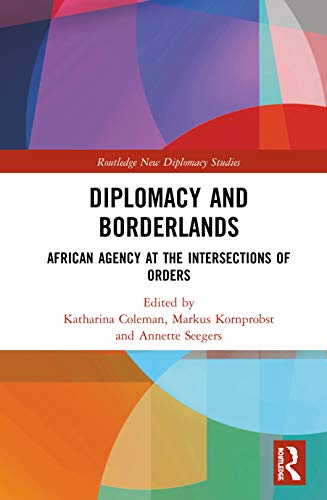

Most ebook files are in PDF format, so you can easily read them using various software such as Foxit Reader or directly on the Google Chrome browser.
Some ebook files are released by publishers in other formats such as .awz, .mobi, .epub, .fb2, etc. You may need to install specific software to read these formats on mobile/PC, such as Calibre.
Please read the tutorial at this link: https://ebookbell.com/faq
We offer FREE conversion to the popular formats you request; however, this may take some time. Therefore, right after payment, please email us, and we will try to provide the service as quickly as possible.
For some exceptional file formats or broken links (if any), please refrain from opening any disputes. Instead, email us first, and we will try to assist within a maximum of 6 hours.
EbookBell Team

4.1
10 reviewsThis book examines Africa’s internal and external relations by focusing on three core concepts: orders, diplomacy and borderlands.
The contributors examine traditional and non-traditional diplomatic actors, and domestic, regional, continental, and global orders. They argue that African diplomats profoundly shape these orders by situating themselves within in-between-spaces of geographical and functional orders. It is in these borderlands that agency, despite all kinds of constraints, flourishes. Chapters in the book compare domestic orders to regional ones, and then continental African orders to global ones. They deal with a range of functional orders, including development, international trade, human rights, migration, nuclear arms control, peacekeeping, public administration, and territorial change. By focusing on these topics, the volume contributes to a better understanding of African international relations, sharpens analyses of ordering processes in world politics, and adds to our comprehension of how diplomacy shapes orders and vice versa. The studies collected here show a much more nuanced picture of African agency in African and international affairs and suggest that African diplomacy is far more extensive than is often assumed.
This book will be of much interest to students of diplomacy studies, African politics and International Relations.